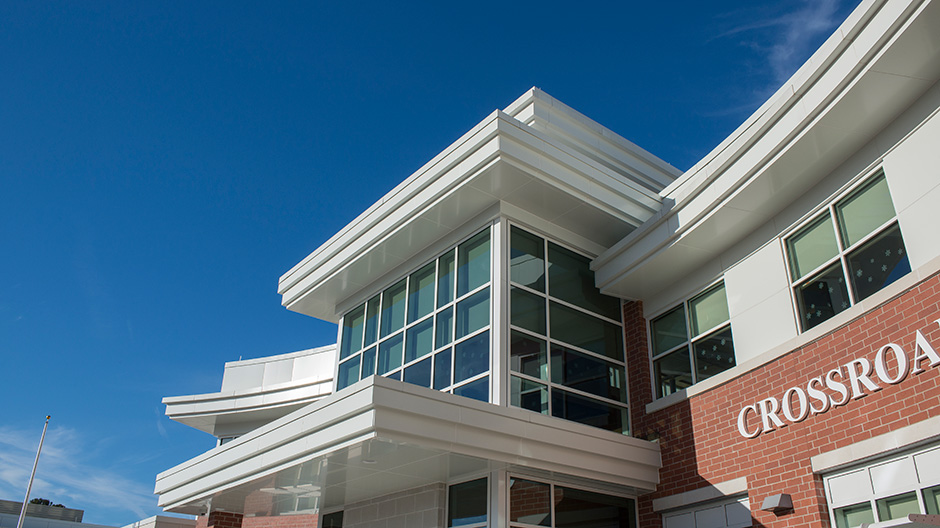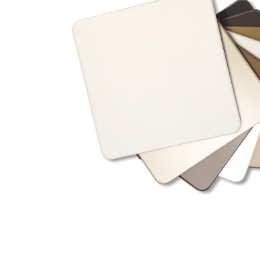ALPOLIC Composite Panels Help School Achieve LEED Silver

| Project: | Crossroads School K-8 |
|---|---|
| Location: | Norfolk, Virginia |
| Fabricator/Installer: | Roof Services Corporation |
| Architect: | Moseley Architects; Virginia Beach, Virginia |
| General Contractor: | McKenzie Construction |
| Exterior Panel Manufacturer: | ALPOLIC |
| Products: | 4mm ALPOLIC PE; MST Mist White |
| Completion: | September 2012 |
The recently completed Crossroads School in Norfolk, Virginia is the district’s first LEED certified educational facility. The original structure was built in 1945 and was replaced with a new, 145,000-square-foot campus. The enormous, state-of-the-art K-8 facility recently won one of only three Gold Design Awards presented by the 2012 Virginia School Boards Association at the Exhibition of School Architecture.
Moseley Architects chose ALPOLIC as a complementary exterior building material, featuring 53,000-square-feet of ALPOLIC’s Mist White panels that envelop the entire perimeter of the building. Engulfed in windows, the building is immersed in natural daylight throughout the day, creating an inviting atmosphere for the children within.
The project received a LEED Silver certification featuring a vegetative roof, solar hot water system and wind power. In an interview with local news station WVEC, the school’s principal Mary Beers explains,
"All of these features will actually be integrated into our science curriculum so the children can learn environmental sciences through the actual building."
The fabricators responsible for this project, Roof Services Corporation, have used ALPOLIC panels for several local educational facilities over the past few years.

LEED Silver Earned for Virginia School
Green school construction accounts for one of the largest market sectors of green construction as a whole. As discussed in previous articles, this is due to the several factors including improving student well being and the reduction of future maintenance inconvenience and cost.
Educational facilities in particular are exposed to heavy use throughout the school year, so building materials must be able to withstand that use over time. Additionally, when used on exterior envelopes and facades, architectural materials are left exposed to a variety of natural elements, including UV radiation, wind, and rain.
In order to prevent increased degradation from these factors, a protective coating containing Lumiflon FEVE resin was applied to the ALPOLIC panels used. This resin reduces deterioration, increases longevity, and keeps industrial maintenance costs low. Should any damage of the material occur, composite panels are cheaper and easier to fix or replace than other, more traditional building materials. The use of ALPOLIC's composite panels on educational facilities continues to increase as they prove to be a durable exterior cladding material.
images © Mark Rhodes for Mitsubishi Plastics Composites America
information © Roof Services Corporation + WVEC






